
foreword | Historical Narratives | Resources | Links | Contact
LORD DURHAM
History records encounters between character and circumstance.
"We rebelled neither against Her Majesty's person nor her government but against Colonial mis-government. We remonstrated. We were derided. We were goaded on to madness and were compelled to show that we had the spirit of resistance to repel injuries or to be deemed a captive, degraded and recreant people. We took up arms not to attack others but to defend ourselves."
Letter to Lord Durham from Dr. Wolfred Nelson
and others confined at Montreal June 18, 1838
When word of the rebellions in both Upper and Lower Canada wafted across the water to London, the British government was stunned, angered and embarrassed and what was worse it had absolutely no idea how to solve the problem. The ascension of young Queen Victoria to the throne was heralded as the commencement of a great new age for Britain. To the consternation of all it began inauspiciously with news of rebellion, death and destruction in one of the Britain's largest colonies. Shocked disbelief greeted word that this first year of Her Majesty's reign was being rocked by rebellion in the Canadian colonies.
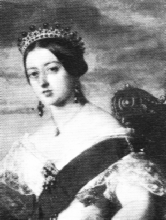 |
|
Queen Victoria |
Prime Minister Lord Melbourne's administration was weak and under bitter attack by opposition that eagerly seized upon this negative news of turmoil in the Canadian colonies as additional proof of administrative neglect and petty oppression. Complaints of corruption and gross misconduct had been made about public affairs in Canada for some time but nothing had been done. Melbourne was inclined to whatever course of action offered a prospect of immediate calm and leisure and the consequence was chaos in the colonies. Shades of 1776! Newpapers charged that solutions to the colonial complaints "forbode ill from the Premier's swaggering indifference to every subject that does not involve the loss of his place at the Queen's side." The core of the crisis in Upper Canada was the inability of the popularly elected Legislative Assembly to influence the actions of the executive. The cause was the constitution and the Imperial government's failure to find a remedy for the growing list of colonial grievances. Anger and frustration at the futility of it all finally flared into rebellion.
 |
|
Lord Melbourne |
Debate in the House of Commons over news of the rebellions in Upper Canada was reported as being flat and poor. Speaking for the Prime Minister, Lord Melbourne. was Lord John Russell, the Home Secretary and Leader of the House of Commons. He moved to the Colonial Office in 1839. It was said that Russell spoke in a manner that deemed defunct - delivering commonplaces claptraps with an air of insolent triumph as though expecting triumphal cheers at the end of each sentence. However, the reception was cold - the applause scanty and faint. He parroted the protests of the Colonial Office that declared Canada had no grievance, that the Government had acted with uniform justice and discretion while the Canadian Assemblies acted like a pack of rogues. Opposition response to Russell's comments was somewhat tame. To observers it appeared to be nobody's business to approach the discussion with a complete mastery of the subject. This illustrated forcibly, said the Spectator, "the fitness of the British parliament to legislate for the distant colonies."
The Imperial government sought someone to blame and who better than the Colonial Secretary, Lord Glenelg, who it was charged had failed to find a peaceful resolution of the crises in Canada. Something had to be done but what and by whom? If the truth were really known Lord Melbourne was not overly concerned about Canada. The casual, indolent, flippant prime minister was indifferent to the cause of the Canadian colonists.
In fact, he felt
"that Britain's failure to hold Canada might not be at all detrimental."
Its loss, however, would lead to the fall of his government and that was unacceptable. While a few members of his Whig party were concerned about the legitimate aspirations of Canadians, most feared they were facing a replay of the American revolution. Clashes occurred within the cabinet while without the Tory opposition attacked the government with "vigor and venom." Melbourne was fully occupied keeping his cabinet quiet and the Queen happy and the Canadian problems were an irritable complication whose timing was most inopportune. He cast about anxiously for a man equal to the mission.
Providentially the hour and the individual came together in the person of John George Lambton who had recently been created Baron Durham. Lord Durham was undoubtedly the undisputed champion of liberal reform. His activities were not limited to parliament. He supported "march of the mind," the popular name given to improving public education. He enhanced conditions of work in his mines and supported the development of the safety lamp for use by miners. He organized and subsidized benefits for his mine workers and provided them with libraries and schools for their children. He supported voting by secret ballot and extending the franchise to all male taxpayers. For his efforts he was honoured and raised to the rank of Viscount.
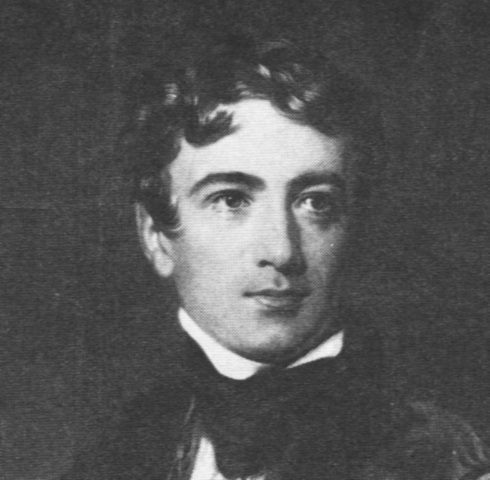 |
|
Lord Durham |
When Lord Melbourne became prime minister he appointed Durham ambassador to Russia. On his return to England two years later, Durham was awarded the prestigious Order of the Bath and at the same time asked to undertake the mission to Canada.
Durham, a man of medium height and elegant bearing, had intelligence, energy and imagination. He seemed a suitable candidate for the Canadian crisis for three very good reasons. He was a shrewd political analyst who could cut through the bull to the business. He was liberal enough to ensure a measure of justice for those who pressed for change, and the assignment would remove him from England.
While Durham was brilliant and considered to be the ablest man in the Liberal party, he was also obstinate, tactless and unpopular with most of his political contemporaries. Too shy for society and too reserved for popularity his haughtiness of manner "wounded his inferiors and irritated his equals." Better to have him in Canada than in cabinet. When first asked by Lord Melbourne to accept the Canadian assignment and solve a political problem many thought insoluble, Durham flatly refused. When conditions in the Canadas worsened he was asked once again this time pressed to accept by young Queen Victoria. Durham consented
In His Own Words"If England requires my services she shall have them."
Durham was appointed Lord High Commissioner with a commission which placed "a special trust and confidence in his courage, prudence and loyalty." Durham possessed these attributes in full measure but his health and his humour were bad and both were to play a part in his early return.
 |
John George Lambton cried himself into this world on April 12th, 1792. He was a distant relative of royalty and born into a life and lineage of privilege, power and pelf. A tradition of political service was firmly rooted in the family which was one of the oldest and richest in the north of England. Durham's father, William, like his father before him, was a Member of the House of Commons for Durham City. William had a reputation as a reformer which he bequeathed to his son along with a fatal disease. William died from tuberculosis at age 33 and he left his five year old son a lethal legacy that led to his early death. Shortly after her husband's death John's mother remarried and quickly relegated her shy, delicate, hypersensitive son to the care of a family friend. The young boy suffered despair and depression from the early loss of his father and the indifference of his mother. The trauma he experienced as a result of this abandonment and neglect shaped his character.
Durham was proud and shy and at ease only with friends and the family circle. He neither danced nor played cards and was very intolerant of tobacco at a time when its use was widespread. He was a serious student of the arts, history and politics and an outdoorsman who loved fishing and riding to the hounds. Durhan was an intense, somewhat sullen individual who was highly sensitive and very self-conscious. His social reserve resulting from his shy, awkward insecurity was misinterpreted by many as disdain and contempt. His critics considered him vain and arrogant, a person addicted to the love of personal power, pomp and show. He was referred to as "his carbonic majesty" because his quick temper was the least of his faults. Durham was an excellent person to work for but a cutting colleague to work with.
 |
In spite of his aristocratic superiority with his peers, Durham, who was known as "King of the Coal Country," maintained excellent relations with the men who worked his coal mines. Durham's independent spirit and the qualities of courage, frankness and sincerity he demonstrated throughout his tragically troubled life were never questioned. The changes he worked to bring about were put forward by him in such a high-handed, autocratic manner that he usually created hostility rather than harmony. He often proposed changes his more cautious colleagues considered extreme. Durham was a genuine liberal, a true reformer, but most of his contemporaries found his fervor more revolutionary than reforming. They resented his radical ideas and the strong influence he had on the Whig party. Durham supported the great reform measures of his time including such forward-looking and impressive policies as dissenters' rights, the emancipation of Catholics, free trade, universal education, the founding of mechanics' institutes - forerunners of libraries, and the establishment of the University of London. He was a major participant in work on the great Reform Bill of 1832 for which he was made Earl of Durham.
Many considered Durham an odd choice for the Canadian assignment. He was one of the most splendid dandies of his time, a widely recognized dude who made the distinctly undemocratic comment that anyone should be able "to jog along on 40,000 pounds a year." He was known privately as 'King Jog' but his political sobriquet was 'Radial Jack'. He was an aristocrat who was both handsome and highhanded, just the kind of man it was suggested sarcastically to drive the Canadian reformers into a rerun of the American revolution. Durham knew he was being sent abroad to get him out of the country but he had been given a free hand and it was to be a short term assignment. He was also allowed all the assistance he needed so he decided to accept the challenge. Prime Minister Melbourne's parting comment to him was "As far as I am concerned, you will receive the firmest and most unflinching support."
By 1838 things were calamitous in the Canadas. There was no sense of drive or purpose among the population. Business was at a stand still and fear, dissension and distrust were widespread. The prisons were full of rebels awaiting judgement and outraged demands were widespread from some who insisted on the death penalty for the leaders of the rebellions. From Reformers came furious demands for democracy which were met with angry charges of treason from the Tories. Persecution and punishments including the death penalty haunted the country.
In Lower Canada racial strife was rampant, anarchy was imminent and the colony was kept under control only by harsh martial law. In Upper Canada tensions along the border were high as outraged Americans demanded revenge for the British destruction on American territory of the Caroline, an American steamboat that was ferrying supplies from the United States across the Niagara River to Navy Island. The island was occupied by Upper Canadian rebels led by the Little Rebel, William Lyon Mackenzie. Mackenzie had declared the island the Republic of Canada, created himself president pro tem, and raised the Patriot flag with its twin stars for the two Canadas.
 |
Meanwhile loaded with Durham's luggage, his finest silver plate and a large number of servants and staff, the ship Hastings sailed from Portsmouth on April 24th, 1838. It arrived at the mouth of the St. Lawrence River on the 27th of May a beautiful spring day. Durham's baggage took two days to unload.
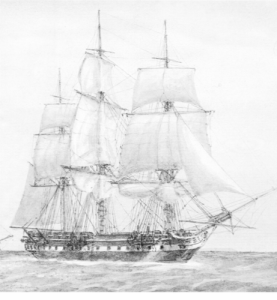 |
Who better to resolve the rebel problem plaguing Canada than the man who set foot on Canadian soil on May 29th, 1838, a life-long rebel himself. Firmly believing that each must blow his own horn Durham was a master of spectacle who flawlessly demonstrated the dictum: "As I see thee thy worth I deem." Conscious of the power of colour and costumes to make the mob stare and gape Durham delayed his entry into town until a ceremonial spectacle was arranged befitting an emperor's pomp and dictator's power. As guns roared and scarlet-coated Guards snapped to attention Durham disembarked dressed in a magnificent uniform heavily embroidered with silver and decorated with the Order of the Bath. Accompanied by bands, red-coated regulars and blue-uniformed Hussars, Durham rode up to the old Castle of St. Louis in Quebec on a prancing white charger.
 |
Seldom if ever had the citizens of British North America beheld a personage who combined political prominence and social grandeur in such an astonishing degree. The cheering throngs were thrilled with pageantry and pomp such as they had never seen before. His moody, passionate nature, his imperious yet gracious manner and the carelessly extravagant magnificence of his style of life soon became legendary in the Canadas. As they cheered the dramatic display they had no idea of the impact this illustrious nobleman with black curls, black brows and brilliant eyes would have on their future and that of Canada and the British Empire. Despite his brilliance and luster his handsome face was haggard and he had the look of a man who had not long to live and knew it.
Despite his imperious nature Durham was gracious and intensely compassionate. He also possessed the happy faculty of being able to grasp all the essential facts of a complex problem and suggest the best remedy under all the circumstances. Durham was the proud leader of the small group of 'Colonial Reformers' from England who had faith in the future of the Empire. He was compared by some to a doomed Don Quixote who had no chance of halting the havoc, however, clothed with exceptional power and accompanied by a brilliant staff he prepared to undertake the task.
As Governor-General with a dictator's power Durham had been given a free hand - or so he thought - to restore tranquility and recommend some effective means of governing these fractious colonies in the future. Only time would tell whether "the idol of the hour would become the martyr of tomorrow." The most critical problem facing Durham was what to do with some 161 political prisoners in jail awaiting judgement for the parts they had played in the rebellion. "Enough death." said Durham. He favoured clemency but in the tense climate that pervaded the colony he questioned the impartiality of the local system of justice and feared the outcome of the trials. Durham quickly convinced eight of the rebellion ringleaders to confess to their guilt and agree to banishment to Bermuda never to return on penalty of death. Melbourne wrote to approve this measure saying, "Go on and prosper." Sixteen others who had already fled to the States faced the death penalty if they returned. With the exception of six accused of murder all others were granted amnesty on the occasion of Queen Victoria's coronation. Durham was relieved that the guilty parties had been given justice, the misguided had received mercy, and society had been accorded security all without shedding a drop of blood. His actions won general acceptance in Canada.
Durham and his aides spent only 11 days in Upper Canada most of which time was at Niagara Falls where his large staff stayed at the Clifton House Hotel for $150 a day. The eleven days cost the British taxpayer 7000 pounds but it was money well spent. In a letter to Lord Melbourne Durham inserted the following personal observation regarding the great cataract."I am now writing you in sight of the grandest and most magnificent spectacle which ever presented itself to my eyes - the Falls of Niagara. They infinitely surpass the most extravagant notion I ever entertained of their sublimity. No man ever lived but Milton, who could adequately have described them."
 |
Durham did what no Canadian governor had ever done. He opened communications through the British ambassador at Washington with the republic to the south. Durham recognized the rebellion in Canada invited American intervention but that it was necessary to make clear to the Americans that Britain would deal with the rebellion, repress border incidents and, if need be repel invasion. Durham sought to sooth angry American feelings over the violation of their territory by extending every cordiality to them. To do this he spent some eight hundred pounds on hospitality and lavish displays wining, dining and dancing "our republican neighbours."
 |
He arranged for an impressive display of British military might on the Canadian bank of the river above the Falls as an audience of hundreds of American spectators looked on. The heights above the falls within sight of the border were white with the canvas tents of the King's Dragoon Guards and the 43rd Regiment of Foot. To a reveille of cavalry trumpets and skirling highland pipes the Governor-General reviewed the troops on the flat ground below the encampments, the martial sound of drums, trumpets and fifes accompanied by the thundering roar of the Falls. The purpose of this display of military might was,
In His Own Words"to impress upon our American neighbours the value the British Government attaches to the maintenance of her empire in Canada."
 |
July 15th, 1838 was a memorable day in the history of North American relationships for it marked the first time a British governor general had ever stood on American soil. Durham crossed the Niagara River to Lewiston and with Lady Durham moved freely through a curious and friendly crowd. His pleasant personality and gracious conduct went a long way towards neutralizing American sympathy and support for the Canadian rebels, many of whom had sought shelter and succor along the American side of the border.The Americans responded enthusiastically to this genial gentleman, the most important British official many of them had ever seen.
 |
Complaints were made regarding the high cost of Durham's brief visit to Upper Canada but it was said that "a million of money would have been a cheap price for the single glass of wine which Lord Durham drank to the health of the American president." Everyone was impressed by Durham's diplomacy, which produced "great and good effects on the feelings between the two nations." Even the most militant American Democrats were loud in their praise of Durham's courteous manner and "Lordly Court," the American name for the banquet hosted by Durham on July 17th.
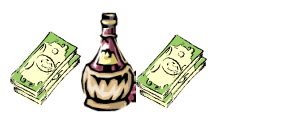 |
In spite of being widely accepted in Canada Durham's action led to an uproar in the British Parliament where his enemies in the House of Lords were determined to ridicule his work. They eagerly seized any opportunity to discredit him and bring down the government. They were anxious to find any stick with which to beat "the Dictator" as he was commonly called. Durham's detractors declared his actions illegal. Banishment and sentences of death were supposed to follow not precede a trial and conviction. He was labelled a despot who had exceeded his powers and there were cries for his actions to be disallowed. Lord Melbourne's promise of his full support sounded like an unkind joke for fearing for the life of his government Melbourne folded after the faintest show of defence, and overturned Durham's Bermuda banishments. Durham's House of Commons' colleagues had betrayed him.
 |
The manner in which Durham would react to this negative news was clearly predicted by this personal glimpse of him given by a colleague before Durham learned of the betrayal. "The truth is that Lord Durham's health and character utterly unfit him for such service as the one he is now on. He would do it better than any other of our public men because he is thoroughly honest and has larger and better views than any of them. But he is so anxious and nervous that he literally cannot bear the burden of distant responsibility." To make matters worse Durham learned of Melbourne's disallowance by chance through reading an American newspaper. While he immediately dispatched his resignation to the government he determined to complete his inquiry because of the Imperial Parliament's "lamentable want of information" about Canada.
He laid his case before the Canadian people in a farewell Proclamation in which he defended his public acts. This highly controversial behaviour was considered a dangerous innovation since it represented an appeal by a public official to the general public against an order of parliament. There was no doubt about how Canadians felt. There were tears and mourning on November 1st when Durham departed amidst pomp and pageantry on the ship Inconstant.
"Spectators filled every window and every house-top and though every hat was raised as we passed, a deep silence marked the general grief for Lord Durham's departure. Their mood matched the weather for "the sky was black with clouds bearing the first snowstorm of the winter and hardly a breath of air was moving." Durham's hasty departure from Canada meant he missed an opportunity to be regally welcomed in Washington. Durham was held in such high honour by Americans, he would have been asked to stay with the President at the White House as a national guest. This honour had only been conferred once before on the French general, Lafayette.
Concern for people was the distinguishing feature of Durham's short stay in Canada and outraged crowds who fully supported Durham's initiatives burnt Melbourne in effigy. Durham arrived home on the 30th of November and by the middle of January, 1839 he had completed his Report. In only five months at a cost to the British taxpayer of some 60,000 pounds, Durham and his staff had accomplished a monumental task. Their Report on the Affairs of British North America became one of most remarkable of all state documents and served for years as the guide for British imperial policy.
 |
Of the Report's four parts the largest dealt with Lower Canada, the second with Upper Canada, the third with the Maritimes and the fourth contained recommendations to resolve the rancor. Durham summed up the cause of "deadly animosity" in Lower Canada with his famous sentence: "I expected to find a contest between a government and a people; I found instead two nations warring in the bosom of a single state." He quoted the words of one of Lower Canada's ablest advocates. "Lower Canada must be English at the expense if necessary of not being British."
Durham's cardinal error for which he and his report are rigorously criticized by some historians was his denigration of the French-speaking Canadians. He recommended uniting the two provinces in order to assimilate them for their own good. However, the report had to reverse effect and served to strengthen the resolve of French-speaking Canadians to fight to retain their language, their culture and their institutions. British officials who followed Lord Durham, chief among whom was Lord Elgin, openly disagreed with Durham charging that attempts "to denationalize the French, produce the opposite effect, causing the flame of national prejudice and animosity to burn more fiercely. Let them feel rather that their religion, their habits, their prepossessions, their prejudices are more considered and respected here than in any other portions of this vast continent." Lord Elgin and others recognized the valuable role French Canadians played in Canada's society and acted to ensure their language, religion, customs and contribution would continue to make Canada a unique country.
The Durham Report is one of the greatest state papers in the history of the British Empire. It helped British North Americans to restore belief in their own destiny and gain confidence in the political system they preferred. Known as The Report On Canada, Durham's opinion documented the tumult in clear, concise, forceful language that made exceptionally good reading then and is equally appealing now. Durham identified two problems. One was the system of land distribution which Durham said aided speculators and "land jobbers" more than immigrants. He recommended the abolition of the Clergy Reserves and land speculation in order to create a sound system of colonization. The other flaw was a constitutional arrangement that impeded the provision of "good government." Upper Canada's "defective constitution" gave power not to a party but to "personalities" whose control of the governor obstructed the efforts of the reformist opposition that dominated the popularly elected Assembly. Durham described this combination "as representative and irresponsible government, an evil which no civilized community could bear. It was a question between a petty, corrupt, insolent Tory clique and the mass of the people."
The solutions were obvious to Durham. He rejected the assertion that representative institutions in the mother country and the colonies were two entirely different things. He argued that the colonies must have full authority to conduct their own internal affairs by men in whom the people had confidence and from whom the governor would then select his advisers. "The change would amount simply to this: that the Crown should henceforth consult the wishes of the people in the choice of its servants." Colonial governors should no longer be autocrats decreeing the course of local events but should be responsible to the elected legislatures of the provinces.
The Family Compact, which Durham referred to as 'a party,' had come into power in the days of Simcoe. Of it Durham wrote "Fortified by family connection and the common interest felt by all who held and all who desired subordinate offices that party was thus erected into a solid and permanent power controlled by no responsibility, subject to no serious change, exercising over the whole government of the province an authority utterly independent of the people and its representatives and possessing the only means of influencing either the government at home or the colonial representative of the Crown."
Sir Francis Bond Head, whose confrontational behaviour as Lieutenant Governor of Upper Canada resulted in the rebellion, recorded his views regarding the rebellion in a book he titled, A Narrative of the Canadian Rebellion written in 1839. In it he set down this description of the Family Compact.
In His Own Words"The family compact of Upper Canada is composed of those members of its society who either by their abilities and character, have been honoured by the confidence of the executive government or who by their industry and intelligence have amassed wealth. The party I admit is comparatively a small one but to put the multitude at the top and the few at the bottom is a radical reversion of that pyramid of society which every reflecting man must foresee can only end by its downfall."
Of Head and other governors Durham stated "Successive Governors submitted or yielded to this well-organized party [Family Compact] the real conduct of affairs. The bench, the magistracy, the high offices of the Church of England and a great part of the legal profession are filled by the adherents of this party. By grant or by purchase they have acquired nearly the whole of the wastelands of the province and the chartered banks and shared among themselves almost exclusively all offices of trust and profit."
Durham recommended the immediate union of the two Canadas and looked ahead to the eventual confederation of all the Canadian colonies. "Confederation would enable all the provinces to cooperate for all common purposes and above all form a great and powerful people possessing the means of securing good and responsible government." He recommended the establishment of municipal governments to ensure local control over "the parish pump."
Durham said his Report would contain "disclosures of which the Parliament and People of England had no conception." > The Spectator commented as follows on the report. "Such excessive, such constant, persevering obvious misrule was never yet brought home to the government of a free people. The Report is one continuous censure of the system and practice of our Colonial government. People in the Colonial office and of all offices will complain that it is totally deficient in the proper official tone - of unmeaning vagueness and disguised lying. Durham knows nothing of red tape. His Report is wanting in heavy humbug which delights those whose world is 'this office.' For the first time an eminent English statesman treats colonists with respect due to a free people. Concealing nothing from them, not attempting to delude them with vague generalities but admitting and enforcing their just causes of complaint, he proves their grievances and insists their interests should be consulted by allowing them to manage their own local affairs in their own way. Government should be founded on one principle: that of government responsible to the governed. If we will not govern them well, they will soon govern themselves without our assistance."
Durham's Report was laid before the British parliament on the 11th of February, 1839. Instead of fame and acclaim Durham received only blame and criticism. Lord Melbourne, who usually showed a swaggering indifference to anything that did not involve the loss of his place at the Queen's side, found the idea of ministerial responsibility "a logical absurdity"> for a colony.
The Report reached Canada in the early summer and was the discussed widely in the press and in the provincial legislatures. "Durham Meetings" were held throughout the province all of them adopting resolutions in favour of the Report. Tories hated the Report, called it "horrid, disgraceful and mischievous" and immediately identified it with radical, democratic, responsible government. They denounced Durham as the >"Lord High Seditioner," and rejected his report outright.
 |
Reformers hailed the report emphasizing its conservative and more moderate proposals. Represented by Egerton Ryerson, a disillusioned Tory who became an ardent "Durhamite," they argued that other than the union of the Canadas little would be changed if its recommendations were adopted except that Canadians would be "governed as in England by men as well as institutions of their choice." "The charm of responsible government turned every head in the province" and the spirit of North Americans in the New World was to prevail. Before the rebellions it was popular to label all reformers as disloyal republicans. Now the Reformers could identify themselves with the powerful voice of Durham and his Report's recommendation of "responsible government." It became impossible for the Tories to label responsible government an irresponsible American import for it was being recommended by a British politician. Within ten years much of what Durham had recommended was implemented in British North America.
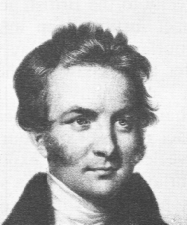 |
|
Egerton Ryerson |
Durham was a man before his time, however, he never knew the full impact his famous report was to have on British colonial policy for he died from tuberculosis on 28th July, 1840. Praise for the report that reconciled colonial autonomy with unity of the empire came after his death. Canada it was said had killed Durham. In fact, the converse was true - Durham had given life to Canada. Although recent history has tended to be critical of Durham's recommendations regarding the French in Lower Canada he remains pre-eminent among the founders of the modern Commonwealth.
Family misfortunes overwhelmed Durham. His eldest son died at age 13 and his mother the following year. Then in the space of four years he lost three daughters. His own life was cut short by when he died from tuberculosis in 1840 at the age of 48. Fifty thousand people attended his funeral. In 1844 a memorial to Durham was paid for by public subscription and constructed in his own home county between Durham and Sunderland. It is a many-columned Doric temple situated "proud, high and lonely"' on Penshaw moor.In keeping with the Lambton family motto: Le jour viendra (The Day Will Come), Durham's last words as he lay dying on the Isle of Wight were prophetic:"Canada will one day do justice to my memory." Canada's existence as the great nation she is today is due in part to Durham and others like him whose wisdom and actions "created a revolution under a mild and constitutional name."
 |
|
This diagram depicts the differences between representative [1792]and responsible [1849] government.
|
Copyright © 2013 Website Administrator